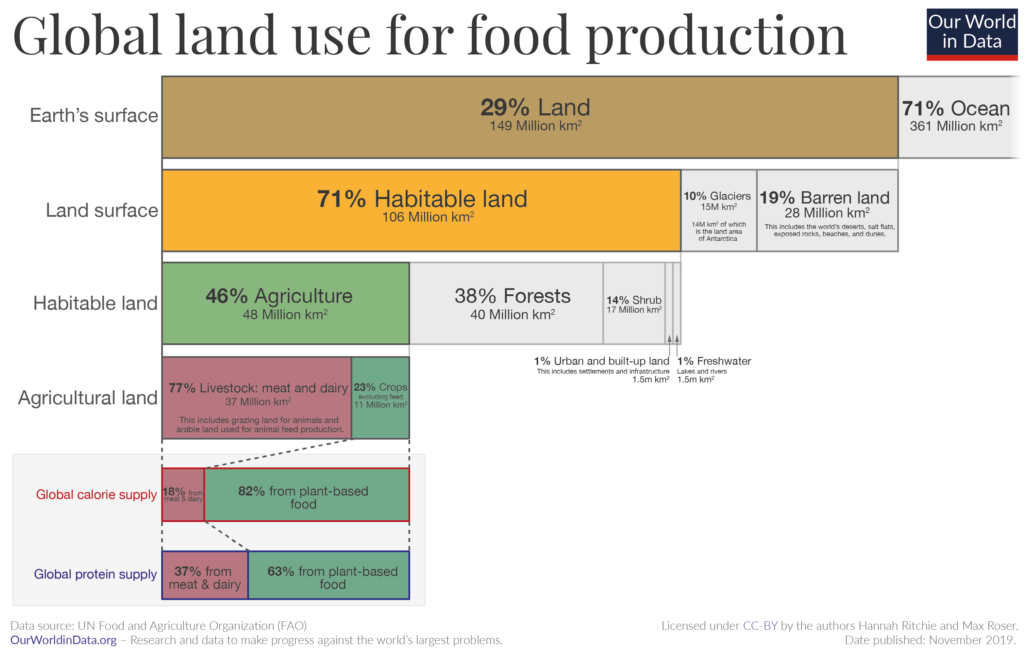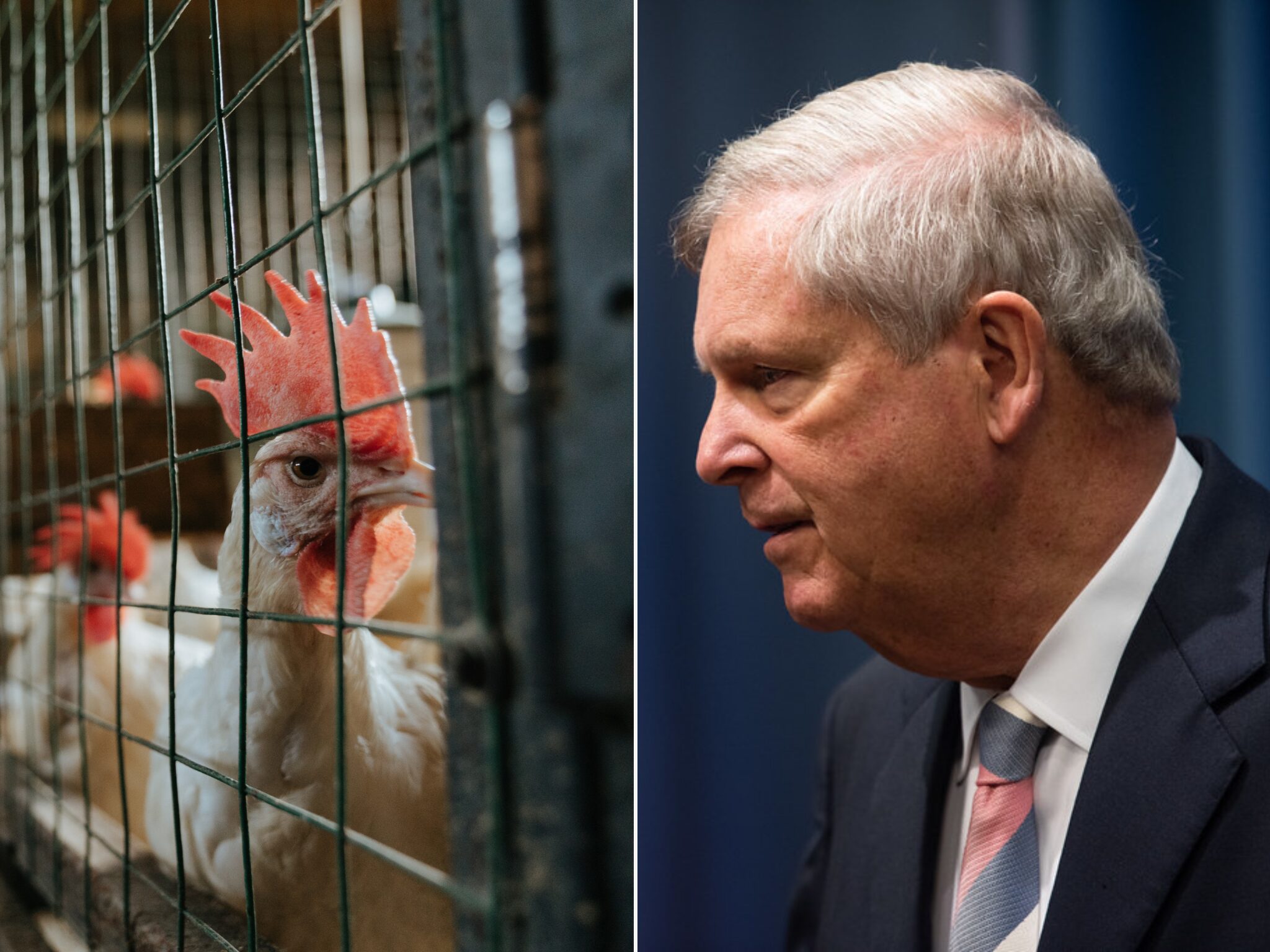Scientists to USDA: Tackle America’s Meat Consumption, or the Climate Crisis Will Force You To
5 Mins Read
In a strongly-worded, evidence-backed open letter, more than 250 climate, nutrition and food experts and organisations are calling on USDA chief Tom Vilsack to address the country’s heavy meat consumption as a climate mitigation strategy.
In December, the US agriculture secretary Tom Vilsack was asked at COP28 if he had heard about meat reduction as a strategy to tackle climate change. “I don’t hear much about that,” he responded, adding: “I did hear about the important role that strategies for methane reduction could play in making the current livestock industry more sustainable.”
Now, over 250 climate, health and food advocates are pushing back on the USDA chief’s comments. In an open letter addressed to Vilsack – spearheaded by the Center for Biological Diversity – experts point out the US’s signing of the Emirates Declaration on Sustainable Agriculture, Resilient Food Systems, and Climate Action, which included a pledge to “work collaboratively and expeditiously” to shift towards the consumption of lower-emission foods.
The US and its meat problem
COP28 was widely touted as the first food-focused COP, with a dedicated food day, a menu with two-thirds of food being meatless, and the release of an agrifood roadmap for emissions cuts by the FAO. That roadmap, which was rumoured to be encouraging a reduction in meat consumption in richer countries, didn’t pan out that way – at least not as explicitly.
As the letter points out, the FAO’s plan reads: “High consumption of food products with high GHG footprints in some locations contribute unnecessarily to the emissions of agrifood systems… The issue is to know not ‘if’ diets should change – for they absolutely must for human and planetary health – but how to obtain these results.” But it also mentioned that low-income nations needed to increase the output of their livestock.
The reality is that animal agriculture is highly detrimental to the environment. The food system accounts for a third of all emissions – livestock farming, depending on who you believe, is responsible for anywhere between 11 to 19.5%. Meat itself makes up 60% of all food emissions, despite only supplying 18% of the world’s calorie supply and 37% of its protein needs. But instead of reducing our consumption of meat, we’re set to be eating 14% more of it by 2030.

The US is a major culprit here – Americans eat over six times more red meat than the recommended daily intake by the Eat-Lancet Commission. And there is a climate disconnect here: 40% of the country doesn’t believe eating less red meat would help climate change, a number that rises to 74% for overall meat consumption, according to a separate study.
These attitudes aren’t helped by the fact that policies are heavily skewed towards the animal agriculture industry. Livestock farming receives 800 times more funding than alternative protein companies in the US, according to a study that suggests the “gigantic power” of the meat and dairy lobby is blocking the rise of sustainable alternatives. And in November, when the US invested nearly $200M in 185 agricultural projects to boost the supply chain, there was no mention of climate change, emissions or protein diversification.
Other research has revealed how veganism can cut emissions, land use and water pollution by 75% compared to a meat-rich diet. And if you were to look at it more pragmatically, even a 50% switch to plant-based alternatives to meat and dairy can reduce emissions by 31%, halt deforestation and double overall climate benefits.
Scientists’ three key recommendations to the USDA
That’s not to say that the US hasn’t recognised the value of alt-proteins – even if states like Florida and Arizona are pushing back. Last year, the USDA granted regulatory approval to Upside Foods and Eat Just for their cell-cultured chicken, a landmark move that made it only the second country to do so. It has also cleared the sale of precision fermentation dairy proteins from three companies.
So, as the head of the USDA, it stands to reason that meat reduction should be on the agenda for Vilsack. “The USDA has repeatedly been urged by scientists (including its own scientific advisory committees), environmental experts, and public health advocates over the past decade to address excessive meat and dairy consumption in food and nutrition policy,” the letter states. “But the United States has fallen far behind other G20 nations in even taking the first step of incorporating sustainability into the national dietary guidelines.”

Directly addressing the agriculture secretary, it continues: “Under your leadership, the USDA has instead relied on false solutions such as feed additives, which have minimal impact in reducing emissions and aren’t scalable, and biogas, which worsens the problem of pollution and greenhouse gas emissions. Improving agricultural production is only one piece of the puzzle, and ignoring dietary shifts in consumption creates an ineffective and weak climate response.”
The signatories go on to outline three key demands from the USDA:
- Immediately make meat and dairy reduction a key part of USDA’s climate strategy by acknowledging the role of consumption in climate mitigation and identifying opportunities to support and incentivise dietary shifts.
- Align food and climate goals in all USDA programmes and policies, including by increasing access to healthy, plant-based foods in the school meal programme.
- Integrate sustainability into the Dietary Guidelines for Americans, with an emphasis on plant-forward dietary patterns.
Jennifer Molidor, a senior food campaigner at the Center for Biological Diversity, said: “Secretary Vilsack can’t keep his head in the sand anymore, because this letter delivers the message loud and clear. We have to address our meat-heavy diets now, or the climate emergency will force us to.”




